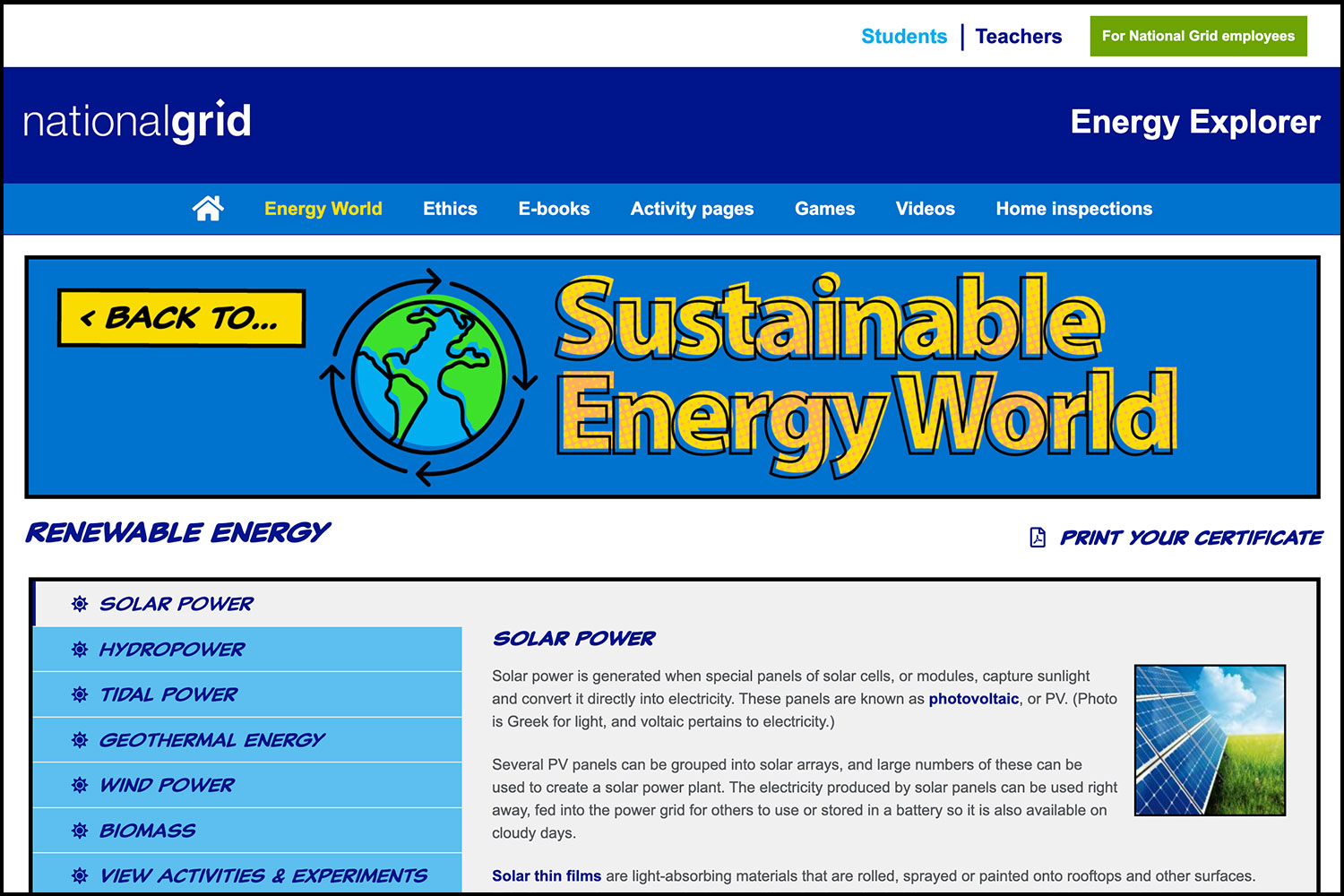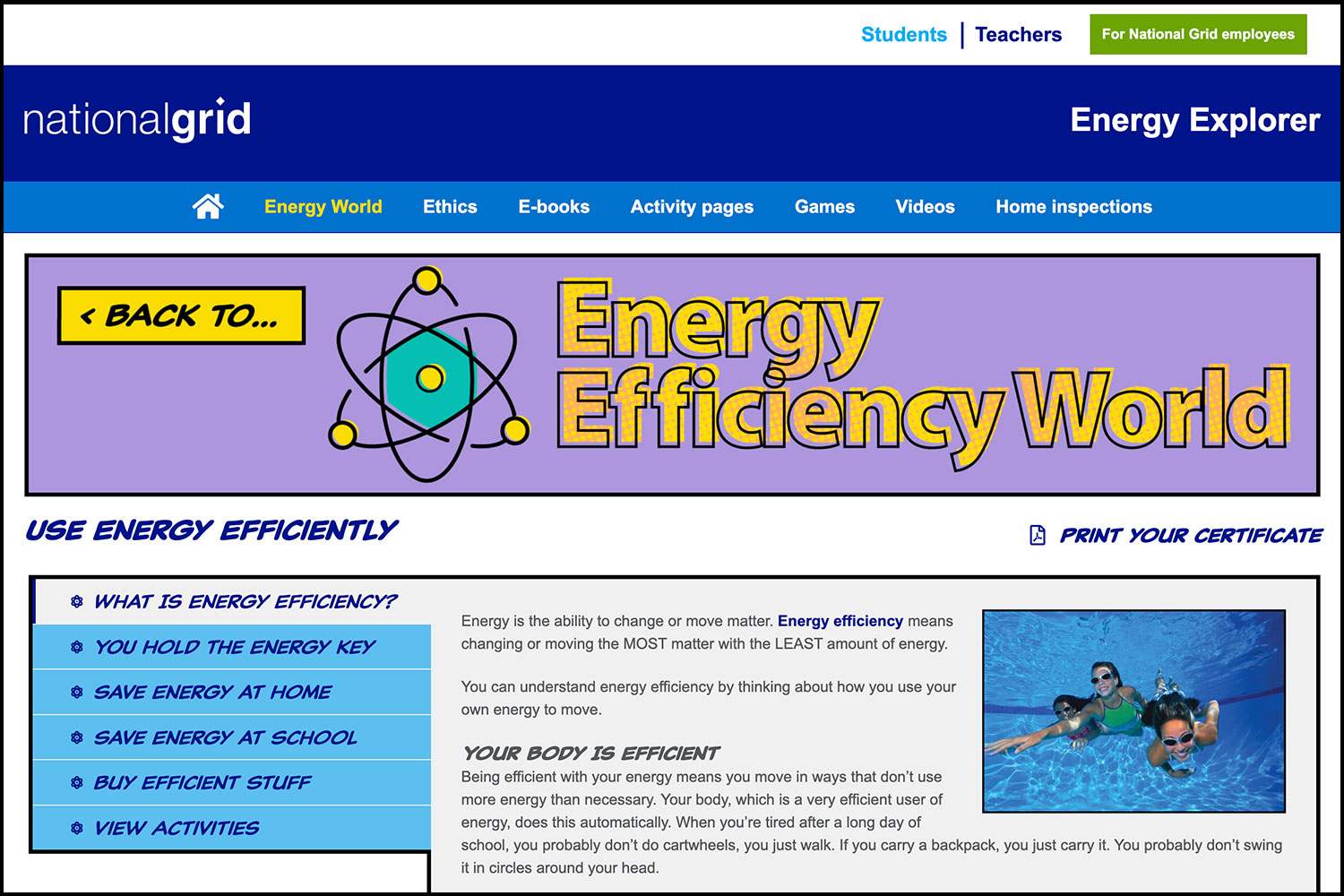 |
 |
|
 |
Sustainable is the way!
We can do our part to make energy use sustainable for all life on the planet, and practice inclusiveness in our communities, so that no one is left out. Read on to see how you can bring these ideas into your classroom. |
|  |
|
 |
Light it up with solar |
| Renewable energy is sometimes called “green power” because it doesn’t emit as much harmful CO2 into the air as fossil fuels do and is gentler on the earth and its systems. With the extreme weather effects of climate change now stretching across the globe, the focus on renewable energy sources like sun, wind and hydropower continues to increase. |
Solar power is one of the fastest growing clean energy sources, both saving costs for homeowners who use it and keeping carbon emissions out of the atmosphere. The benefits of an average home converting to solar power are roughly equal to that of planting over 100 trees annually! |
 |
 |
Photovoltaic (PV) cells, grouped in solar panels, are a common technology for trapping energy from the sun to generate electricity. PV cells are made of the chemical substance silicon, and when the sun’s rays activate them, a chemical reaction occurs that stimulates electrons, producing electricity. Small PV cells can power calculators, phone chargers, watches and other small electronic devices. |
See the Environment pages on our Energy Explorer website for more information on solar power and other renewables, as well as sustainable energy use practices.
|
| Saving energy saves the earth! |
As with renewable energy, adopting energy-saving habits helps protect the earth’s precious resources, while keeping the environment cleaner. Since the earth’s supply of non-renewable fossil fuels is limited, once we use them up, they will be gone forever. Saving energy helps these resources last longer, and reduces pollution too. So using less energy means cleaner air and cleaner waters.
|
As an educator, you can help children acquire energy-saving habits from an early age. For ideas and activities about conserving energy, see the Energy Efficiency World pages on our website.
|
 |
 |
We’re in this together! |
With divisiveness on the rise in many spheres, teaching respect and tolerance for those different than ourselves is critical to sustaining the health of our communities. To increase students’ exposure to these concepts, try including conversations around these themes in your classroom. |
| • |
As a class or in small groups, ask students, “What does respect mean to you?” Mention the Golden Rule of treating others the way you would want to be treated, if no one brings it up. |
|
| • |
Invite students to make a list of synonyms for the word respect. |
| • |
After discussing respect, start a class or small group discussion about what respect doesn’t mean. Ask, “What kinds of things or actions would be disrespectful?” Follow up by asking for synonyms for disrespect. |
|
|
|
Check out the Ethics section of our Energy Explorer website for more classroom lessons and activities on this and a range of ethics topics such as compassion, integrity and commitment. |
 |
 |
Explore all our educational resources! |
| Peruse our Energy Explorer website materials and order complimentary student booklets for grades K–8.
|
Our booklets on electrical and natural gas safety, energy efficiency and sustainability are a great hands-on addition to screen and classroom learning, featuring energy use and home safety inspections, energy-saving and energy safety tips, and activities and experiments to engage the whole household. |
|
|
|
 |
|
|
 |
|
|
|

